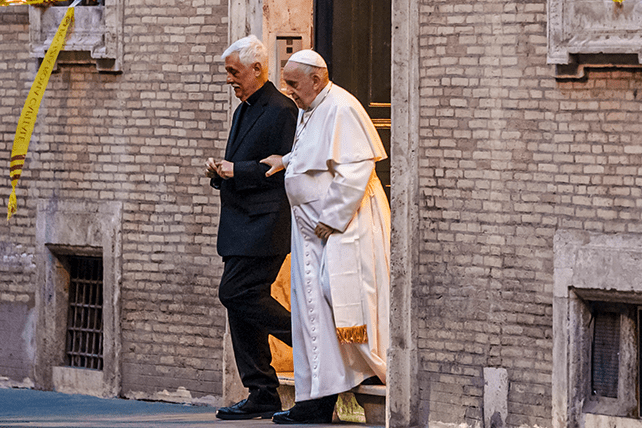Sosa, for example, never once used the word “victim” in describing the women harmed by Rupnik. Instead, he repeated that Rupnik had made “mistakes” and that the Jesuits were committed to helping “heal the wounds.”
“We want to go beyond the juridical question and accompany the personnel who … are brought to do this type of mistake and accompany also the people who were wounded by this behavior, to heal,” he said.
The scandal involving Rupnik erupted last week when three Italian websites – Silere non Possum, Messa in Latino and Left magazine – began revealing allegations of spiritual, psychological and sexual abuse against Rupnik by consecrated women who live like nuns at a Jesuit community with which he was affiliated in his native Slovenia in the 1990s.
Sosa said Wednesday the 2021 complaint dated from that period, and that the Congregation for the Doctrine of the Faith had determined the crimes were too old to prosecute. He revealed that Rupnik was forced to leave the community in Slovenia due to an unspecified “conflict” among the women there. A group followed the priest to Rome, where he founded the Jesuit Aletti Center, an art studio and study center focused on the impact of culture on the Christian faith.
There has been no explanation for why the Congregation, which regularly waives statute of limitations for abuse-related crimes, decided not to waive it this time around, especially considering the previous confession-related conviction. The office, now called the Dicastery for the Doctrine of the Faith, is headed by a Jesuit, has a Jesuit sex crimes prosecutor and had as its No. 2 at the time someone who lived in Rupnik’s Jesuit Aletti Center.
Sosa was asked what, if anything, Francis knew about Rupnik’s case or whether he intervened. Sosa said he didn’t know but “could imagine” that the prefect of the Dicastery, Cardinal Luis Ladaria, would have informed the pope.
To Doris Reisinger, the handling of the Rupnik case sounds all too familiar. She reported confession-related sexual abuse by a priest when she was a nun. The Vatican in 2019 found there was no “absolute moral certainty” to her claim and absolved the priest, who happened to work in the Dicastery at the time of her accusation.
“There is no transparency and no sympathy with Rupnik’s victims, and above all, the most outrageous thing, really, there seems to be a deliberate silence on the most recent case and the excommunication,” Reisinger said in an email. “Personally, it makes me feel sick.”
This article originally appeared here.

